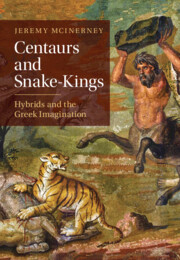A decorated pair of trousers excavated from a well-preserved tomb in the Tarim Basin proved to have a highly informative life history, teased out by the authors – with archaeological, historical and art historical dexterity. Probably created under Greek influence in a Bactrian palace, the textile started life in the third/second century BC as an ornamental wall hanging, showing a centaur blowing a war-trumpet and a nearly life-size warrior of the steppe with his spear. The palace was raided by nomads, one of whom worked a piece of the tapestry into a pair of trousers. They brought no great luck to the wearer who ended his days in a massacre by the Xiongnu, probably in the first century BC. The biography of this garment gives a vivid glimpse of the dynamic life of Central Asia at the end of the first millennium.


